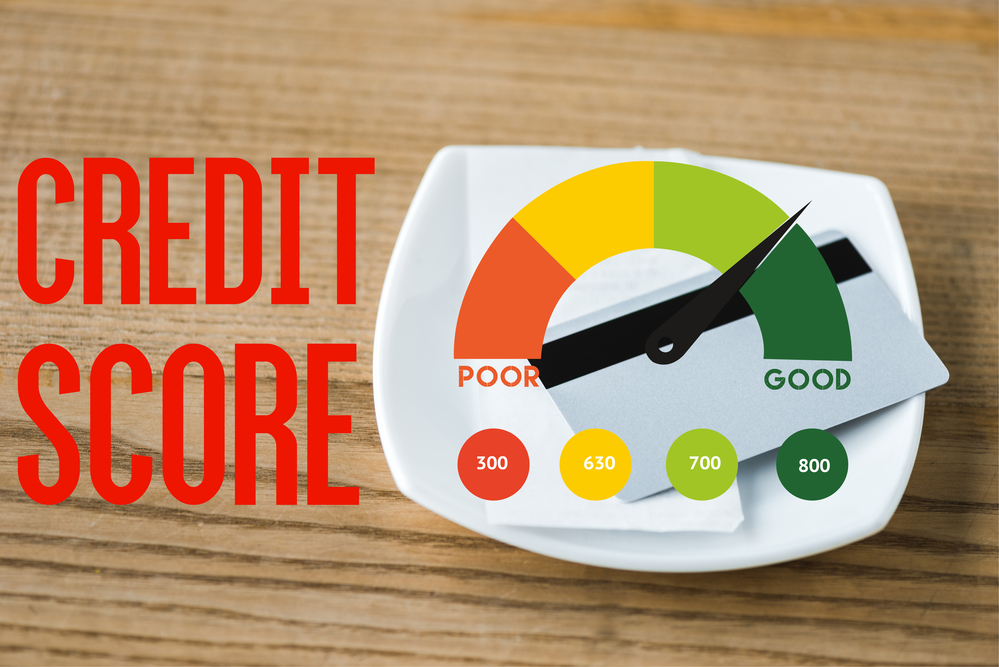If you have student loans, you may have heard about the option to refinance. It is often presented as a way to reduce your monthly payments and is suggested as a positive option for most student loan holders. This can be true. However, you might not know what refinancing is, how it can help you, or how it can potentially hurt you.
In order to decide if loan refinancing is right for you, it is important to first understand what it entails. When refinancing you are essentially taking out a new loan to pay off your current student loans. That probably sounds a little odd, but there are times when it makes sense.
Why should you refinance your student loans?
If you are able to take out a new loan with a lower interest rate or more attractive repayment plan then it can be a great option. This process is similar to refinancing a mortgage loan or car loan. Since student loan debt has become such a huge crisis, student loan refinancing has grown as an industry in recent years. Previously, you might have been stuck trying to refinance through a local bank or credit union, but now there are companies that specialize in student loan refinancing.
Table of Contents
Student Loan consolidation Vs. Student Loan refinancing
You may have heard about loan consolidation as well as loan refinancing. It is important to remember that loan refinancing is not the same thing as loan consolidation. This is often an area of confusion when students start looking for ways to save money on their student loans.
Student Loan Consolidation

Loan consolidation is only an option for federal loans. It is similar to refinancing since it allows you to combine your qualifying federal loans into one, which can be a huge time saver since you are no longer paying towards multiple loans owned by different servicers. In terms of saving money, there are some ways that consolidating your loans can help with that.
First of all, you can consolidate to a 30-year repayment term instead of the traditional 10-year plan or 25-year extended plan. While this could significantly lower your payment now, it will end up costing you much more in the long term.
The other benefit of student loan consolidation is that borrowers can convert variable interest rates into fixed rates. This can be a huge relief since variable rates can make it difficult to budget and plan for consistent payments. However, your interest rate might not necessarily be lower. To calculate the interest rate for a consolidated loan, the servicer calculates the weighted average of all the loans being consolidated. There is no cap on the interest rate and it will be applied across the loan total for everything that was rolled into one.
Student Loan Refinancing
As mentioned student loan refinancing also rolls your loans into one, but the goal is to lower the overall interest rate. Loan refinancing can be used for both federal and private loans, while consolidation is usually only an option for federal loans. Also, loan consolidation can only be done once. So if you have consolidated your loans in the past, it would not be an option again. If you are unable to consolidate your federal loans, you can consider refinancing. However, there are some times when refinancing may cause more harm than good.
Good Times to Refinance
So with that being said, let’s review some of the times when it might be a good time to refinance your student loans.
You have high-interest private loans:
If you only have private loans, then refinancing can be a great option. Private student loans typically have higher interest rates than federal loans and they have high loan limits so borrowers might have more of them. Private loans also have less flexible repayment plans, so being able to lower your interest rate through refinancing can help you get the loans paid off sooner.
You have a lot of loans:

For borrowers who have really high loan amounts, refinancing can make a huge difference. The purpose of refinancing is not only to have your interest lowered, but also to get that new interest rate applied to all of your loans. For borrowers who have multiple, high balance loans, this can be huge. Even a couple of percentage points can make a substantial difference when calculated on interest paid over many years
You have stable income:
Refinancing student loans can come with new terms. You might have to agree to a new repayment time frame and now you have one payment that is due at the same time each month, instead of split up over multiple loan payments. You need to be sure that you can commit this payment and that your monthly income is stable.
You have excellent credit:
Since refinancing your loans is going to be based largely on your credit score, the higher your credit score is, the lower your interest rate will be. Some borrowers work for years to repair and raise their credit score so that refinancing can become a viable option.
Bad Times to Refinance
Next, we will look at times when loan refinancing might not be the best choice.
You only have federal loans:
Some borrowers are able to fund their education fully through federal loans and do not have to take out private loans. Having all federal loans is ideal because they typically have more flexible repayment plans and more options for borrowers who are facing financial hardships. Choosing to refinance federal loans with a private lender would remove all of these options. A better option would be to consider loan consolidation.
You are pursuing loan forgiveness:

Student loan forgiveness is another benefit associated solely to federal loans, but it is important enough to warrant its own bullet point. Borrowers can qualify for loan forgiveness because of the career field they work in or the repayment plan they have chosen. The amount that can be forgiven varies depending on the type of loan forgiveness you are utilizing and the amount of student loan debt that you have. It is possible to have really large amounts of loans forgiven. Because of this, it is in the benefit of the borrower to not refinance the loans and keep them with a federal lender until they are able to have a portion of the loan debt forgiven.
You are not financially stable:
This might seem odd since one of the reasons that you would choose to refinance your loans, would be to try to lower your payments. If you are struggling financially, this probably sounds like a great idea. However, refinancing means that you can lose any repayment benefits that you have on the loans currently. For federal loans, this could mean losing options for income-based or extended repayment plans. For private loans, if you have a payment arrangement made with your lender, that could completely change. You want to make sure you can fully commit your new payments before refinancing.
You don’t have a lot left to pay off:
If you have a small amount of student loan debt to pay off, refinancing might seem like a way to lower your monthly payment and help you pay off the rest of the loan faster. While this assumption isn’t wrong, they are aspects to be cautious about. When you refinance, you are agreeing to a new loan term. This could mean a longer repayment plan and could cause you to end up paying more in interest due to the extended amount of time. Make sure your new interest rate is significantly better and continue to make large payments if you are going to refinance with a small balance.
5 Steps to Help you Decide
If you are still trying to decide if you are ready to refinance or not, review the 5 steps below:
1. Check your interest rate:

If you have multiple loans make sure you understand the interest rate for each one. Even federal loans can have different interest rates depending on when the loan was issued and what type of loan it is. You will want to compare each of these loans to your potential new interest rate when looking into refinancing.
2. Check your loan status:
Make sure you know the status of all of your loans in their current state. Check to see if any of your loans are in deferred or forbearance status. If they are, that means your servicer is allowing you to not make payments for a certain amount of time and it can be in your benefit to not refinance until you are ready to make payments again. Also, make sure none of your loans are currently delinquent or defaulted. If they are, you might have to get them out of delinquency or default before you would be eligible to refinance.
3. Check your credit score:

Since credit will be a huge factor in your new interest rate, you’ll want to understand where your credit is at before even considering to apply. You will likely need a credit score in the 600’s to qualify for a better interest rate. If you are below that, you can reach out to refinancing companies and review your options, but be prepared to be required to wait until your credit score comes up before refinancing.
4. Check your debt-to-income (DTI) ratio:
Similarly to your credit score, your DTI will affect the interest rate that you are approved for. Take a look at your annual income and compare it to all the debt that you currently have, including, but not limited to, student loans.
5. Check loan assistance eligibility:
Before you consider loan refinancing, check to see if you are eligible for any type of loan assistance. Specifically, check to see if you are eligible for loan forgiveness. If you do, choosing to refinance could cost you thousands in potentially forgiven funds.
Tips for Getting Started
Once you have done all your research and decide that student loan refinancing is the next best step, here are some tips for getting started:
1. Do your homework

If you want to have a lower interest rate, you might have to dig a little bit to find it. Just like you would compare credit cards or mortgage lenders, compare the terms for your refinancing. This is not a time in your life when you want to make an uninformed decision.
2. Research your new lender
It has been mentioned a couple of times, but refinancing will mean that you have a loan with a new lender. The goal of refinancing is set yourself up with a better repayment plan than before. This doesn’t just mean a lower interest rate, but also a positive lender experience. Check the reviews and ratings for the company that you are planning to work with and make sure you are comfortable with how they interact with clients before signing on the dotted line.
3. Consider your options
There are companies now that specialize strictly in student loan refinancing. These companies might be able to offer you the best interest rate and experience. However, you should never rule out private banks or credit unions. Especially if you have an established relationship. In fact, because credit unions are not-for-profit institutions, they invest their profits back into the success of the company. Because of this, they can remain competitive with financial options and offer fantastic customer service.
Top Student Loan Refinancing Companies

Finding a lender to work with can be overwhelming, so we have listed some of the most common lenders below. However, this list should only be a starting point to help you begin your research.
-
Common Bond: Interest rate ranges from 2.14% to 8.01%
-
SoFi: Interest rate ranges from 2.14% to 7.71%
-
Earnest: Interest rate ranges from 2.14% to 6.79%
-
Splash Financial: Interest rate ranges from 2.43% to 7.60%
-
Laurel Road: Interest rate ranges from 2.43% to 6.65%
-
LendKey: Interest rate ranges from 2.06% to 8.93%
-
College Ave: Interest rate ranges from 2.74% to 7.24%
Frequently Asked Questions
These are some questions that you might run into as you start reviewing options for refinancing your student loans.
Does it cost money to refinance?
-No. Refinancing should not cost anything. If you find a lender who is trying to charge you a fee, take the time to look elsewhere.
Can I apply with multiple lenders for refinancing the same loan?
-Yes. You should definitely shop around, which requires submitting your information to receive offers from multiple lenders. However, don’t do a full application with all of them. That will cause a hard hit to your credit score and could cause damage.
Can I refinance my loans more than once?
-Yes. Unlike a loan consolidation, refinancing can technically be done as many times as you qualify. However, each time you refinance you are extending the life of your loan. You should only use refinancing when it will benefit you long-term.
Final Thoughts
Dealing with student loan debt is never easy. If you talk to your friends, you will probably find that very few people have a great grasp on their student loans. That is not surprising when you consider many people took out their student loans before they had a career, and sometimes before they even decided on a major.
Student loan jargon can be confusing and most colleges and institutions award it differently. On top of that, there are so many different types of loans available, it is possible to have taken them out without even realizing that they were different. It is understandable to feel overwhelmed or for it to seem like your student loan debt follows you around like a ball and chain.
However, the last thing that you want to do is make a decision that will put you in a worse position with your student debt. Payment reduction options such as refinancing can be incredibly beneficial. For the right borrower, refinancing can save an immense amount of money. Because of this, never be afraid to look into all of your options.
On the other hand, make sure you are not committing to anything until you are certain that it is the best option for you. If you do this, you can be sure you are making the best choices for your loan debt.




